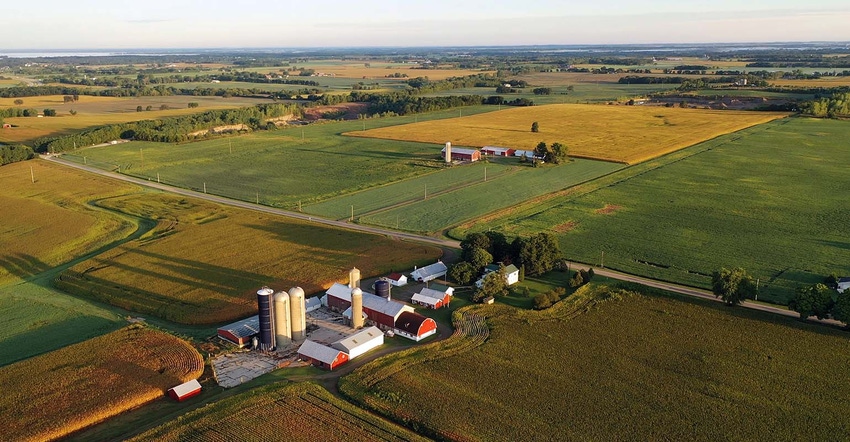
When it comes to what drew you toward farming as a career, what was it initially? For many who farm currently, it was growing up on a farm and experiencing the cycle and lifestyle of each year, year after year. They found that they loved what their parents and other family members did for a living – and wanted that same career and life for themselves.
For others, the path to farming may have looked a bit different. Maybe they didn’t grow up on a farm but worked for a farmer or were involved on a farm operation in some way through a family friend or neighbor. Some may not have discovered that farming was the right career for them until going through an academic program of some kind – perhaps during high school, or at a college or technical school.
But whatever your pathway looked like as you pursued a farming career, there likely was something – or maybe a combination of things – that really drew you in and made you “fall” for it. Many farmers talk about their passion for the land, for stewarding and maintaining it for future generations to come. They talk about the joy of seeing a new crop emerge each year while doing everything they can to achieve great yields.
Business builders
Others might really enjoy the opportunity to run their own business, with some of the increased flexibility and freedom that come outside of the busy season. Working outside, or working with machinery, and just “being in the dirt” are also some of the reasons I’ve heard farmers give.
For some, it could be about managing the operation and managing the business side of it – working with the financials and getting into spreadsheets and metrics to help the business run more efficiently. This might not be as appealing to every farmer, but it can become an interesting part of your career – with elements that are almost like a game as you work to improve your business every year.
Love marketing?
One aspect that I rarely hear farmers mention around why they were initially drawn to farming – or even what they’ve come to love over time about running their own operation – is marketing the crop. It’s just not typically what they’re passionate about.
This can be for a number of reasons. Marketing and selling the crop that you’ve worked so hard to produce can be a daunting prospect – and a range of emotions from uncertainty to anxiety to fear to regret quickly enter the process. It also can be daunting because many farmers haven’t experienced a great deal of education during their career around marketing and the marketing tools that are out there to help manage risk.
And for some farmers, it just might not be as interesting as the many other things they get to do and “hats” they need to wear each day. That’s understandable, but the fact is that if you grow a commodity product, you’re likely going to need to sell it in order to generate revenue for your business. That’s the bottom line.
Work to do
There are a few different things you can do if you’re in the camp that finds marketing to not be very interesting – or you downright don’t enjoy it. One is to do some work this winter to help make yourself more comfortable with the commodity markets, marketing tools and ways to create marketing plans.
Consider working one on one with a marketing advisor who can help bring education around the markets. Our market advisors partner with and bring education around different marketing tools. They also help farmer clients with planning and execution around marketing decisions.
Get a free two-week trial of our marketing information service (MarketView Basic). Your free trial includes regular audio and video updates, technical analysis, recommendations and more. Or learn more about our market advisor programs and offerings at www.waterstreetconsulting.com.
The opinions of the author are not necessarily those of Farm Futures or Farm Progress.
About the Author(s)
You May Also Like






